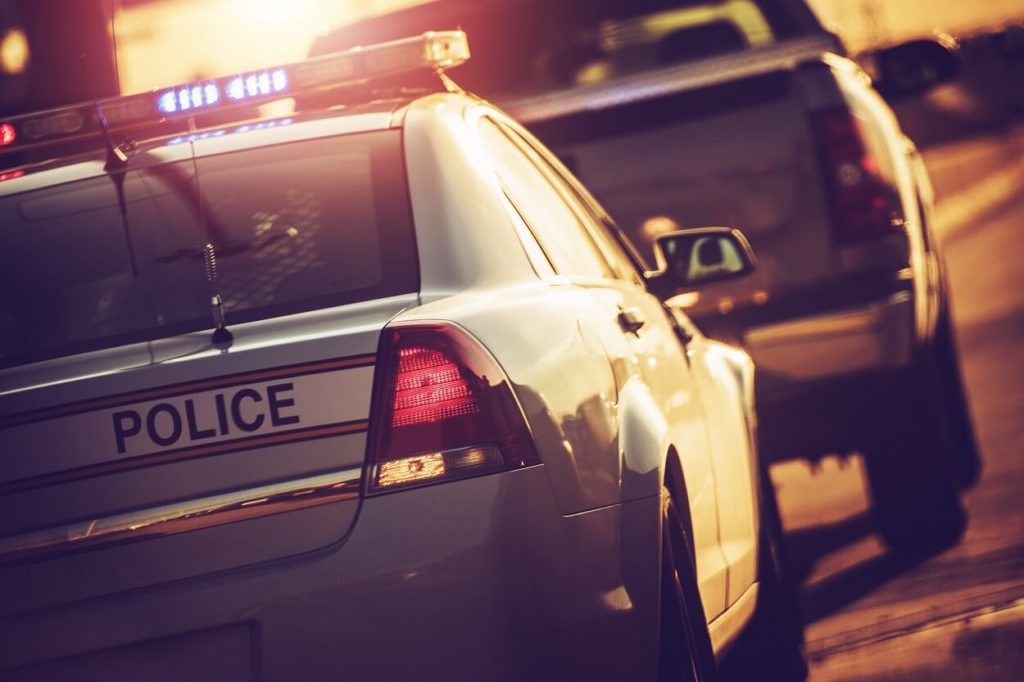Routine Traffic Stops? No Such Thing
Most of us who drive will at some point be pulled over by police for a traffic stop. It is so common that many people know what to do from a young age, perhaps listening to a pulled-over parent walk through the steps from the backseat or in a more formal lecture from mom or dad, auntie or grandpa. In driver’s ed, traffic stops are a covered topic, maybe even complete with role-playing exercises and a quiz at the end.
To refresh, when you see lights behind you, or are otherwise directed to pull over, you should:
- Indicate you acknowledge the officer’s presence and request, by such action slowing down, switching on your turn signal, and preparing to pull to the side.
- Pull over as soon as it is safe to do so. For female drivers, especially, this can be at the next gas station or lit area.
- Wait in the car for the officer to approach, with both your hands on the wheel. Keep your hands on the wheel until you receive permission to move them. If the officer sees you digging around in your car, even if it is to grab your insurance information, he or she will assume you may be reaching for a weapon or hiding something and respond accordingly.
- When the officer approaches, roll down your window.
- When the officer asks for your license, registration, and insurance information, you should acknowledge each request and talk him or her through your movements. For example, “Officer, I am going to get my paperwork out of the glovebox for you.”
- Otherwise, remain silent. Do not give consent for your vehicle to be searched. You are not legally required to provide any information to the officer besides your license, registration, and insurance information. If you are suspected of driving under the influence, this is especially important.
Rules that are drilled into us all. But what to do now that so much in our world has been turned upside down? What should you expect if you are pulled over? Do you need your mask on or off?
Traffic Stops During the Pandemic
Early on in the pandemic, in April and May, traffic was reduced because of lockdowns and voluntary stay-at-home efforts. Worcester police, for example, reported reducing their traffic patrols by half or more.
However, it seems the lack of cars on the road in those early days encouraged some drivers to engage in extremely reckless speeding behavior. Massachusetts State Police reported an uptick of drivers stopped for going more than 100 miles an hour in April and May, particularly in the Metro Boston area. As a result of this dangerous rash of speeding, state authorities actually implemented an increased patrol presence along highways.
The Situation Now
To be clear: there is no uniform policy nationwide, or even within Massachusetts, governing the rules of engagement for police in a traffic stop during COVID. The International Association of Chiefs of Police has suggestions such as: officers approaching on the passenger side to socially distance from drivers; focusing on very serious speeding and traffic violations that endanger lives, except when minor infractions would indicate intoxication; and wearing a mask and gloves during traffic stops.
In the face of this uncertainty, what you can do is plan behaviors that will continue to protect yourself from legal trouble, possible injury, and the coronavirus.
You may drive without a mask on when driving alone. If so, do not put your mask on until the officer has approached your car and you have indicated your plan to do so. This will guard against the mistaken assumption that you are rummaging around for a weapon or attempting to hide your identity.
These are uncertain times, but you can be certain of our support through them. If you are facing OUI/DUI or other charges related to a traffic stop, call our office today for a case evaluation.

